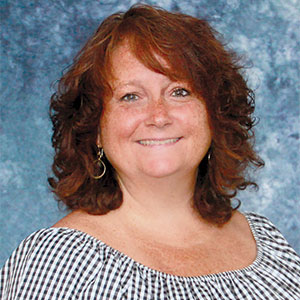Our members are amazing! They listen to our training, and they honestly want to do the right thing for workers’ compensation. Some know the drill so well that they may not call us about the injury but instead send in the required paperwork. They haven’t done anything wrong in this case, but there is more to that initial call than just reporting an injury.
When someone is injured at work, and it is not a life-or-death emergency, members should call us to report the injury and get assistance with an in-network referral. Even if the injured worker does not want to seek medical treatment, we still want to hear from you.
Reasons for a call:
- Reporting the injury: We gather information about what happened and details of the injury. From here, we start a paper trail. The call allows us to begin to manage a claim even before the paperwork arrives. Early intervention with workers’ comp leads to better outcomes. We keep detailed notes on these calls, and if the First Report of Injury form does not arrive promptly, we will call to remind and assist with the filing, which can avoid late filing fines from the Department of Labor.
- Assisting with network treatment: All NHADA WCT members are part of our managed care program, and treatment needs to be within the managed care network. The call to us at the time of injury allows us to assist with this step. There are some rare instances when out-of-network treatment may be allowed, and we can help with this situation as well. We have built strong relationships with local occupational health and specialty providers, allowing us to make same-day referrals for treatment. During the COVID-19 pandemic, some treatment options may have been busier than others. A prompt call will provide options for the injured worker to avoid long wait times.
- Options and cost containment: Often, those suffering on-the-job injuries believe the best place for treatment is the emergency room, no matter the nature of the injury. Emergency rooms are for emergencies. If you are not in a life-or-death situation, do not go to the emergency room. Unnecessary emergency treatment is costly and it slows the care for those who genuinely need it. A simple laceration requiring sutures may bill out at an occupational medicine provider at approximately $300-$500. That same treatment at an emergency room can run well over $1,500, not to mention the time lost from work due to long wait times.
- No treatment, no call: Even if the injured worker does not want medical treatment, we still want to hear from them. During these calls, we may be able to identify specific reasons treatment should be sought immediately, i.e., the need for a tetanus shot, the time frame for sutures, or the decision to seek treatment at an occupational health provider versus a middle-of-the-night visit to an emergency room.
- Temporary Alternative Duty: Since we begin managing the claim after a telephone call, we can get the NH Workers’ Compensation Medical form from the injured workers’ treatment visit and review it for the return-to-work plan. In some cases, an injured worker is released to light duty, and we can help the employee with this issue. It is a common misconception – “full duty or no duty” – but accommodating temporary alternative duty is more straightforward than one would believe and saves the employer money. Not accommodating light-duty makes a claim a lost-time claim, which will drive up the experience modification factor. The NHADA WCT staff is well versed in light-duty options in the automotive industry, and we can assist with getting the injured employee back to work.
- Does the Occupational Safety and Health Administration (OSHA) need to know? During the call, we may identify a reason the employer may need to notify them of the injury, which can be time-sensitive. Some injuries may also prompt a visit from OSHA to investigate the incident. If this is the case, we can assist in having our Loss Prevention department arrange a visit to help prepare for the OSHA visit and provide support during the visit.
- Still more questions: Think of a workers’ comp injury and claim as a bit of a puzzle, in that many pieces need to be put together. Each member of the NHADA WCT Claims Team has a role in collecting these pieces. A member might be quick to say, “I already told someone else that.” Each member of the team has a separate role, although we all work together. Justin will be investigating, Deb may be working on light duty, Marta will be collecting medical information, and Pete may review it all. During this call, we may also identify other information the member needs to provide us with to assist in managing the claim; this could be second injury fund information, wage information and video surveillance, to name a few. Getting what we need as soon as possible allows us to manage the claim better.
- What about those bills: When we are aware of an injury through the call from our members and know where the injured worker is going for treatment, we can reach out to the provider to ensure they have the correct billing information. This helps prevent the billing from going to the wrong carrier or the patient. A common misconception is when a provider bills the injured worker directly and believes the bill came to us, it gets thrown into the trash. In reality, the provider sent it to the patient because they did not know where else to send it. This can lead to injured workers having bills sent to collections and causes delays in closing claims.
- What more do we offer: Another excellent reason for the call, we may have more to provide. During the call, we might have the opportunity to chat about online filing if it has not been tried yet. Or maybe there are some new HR employees or new managers who would benefit from a visit from Deb to review the filing process, or perhaps your employees meant to arrange CPR training, as well as many other questions you may have for us. This call does not have to be only about the injured worker; we are here for our members.
Please give us a call – we want to hear from you. Our number is 603-224-2369 or 800-852-3372.








